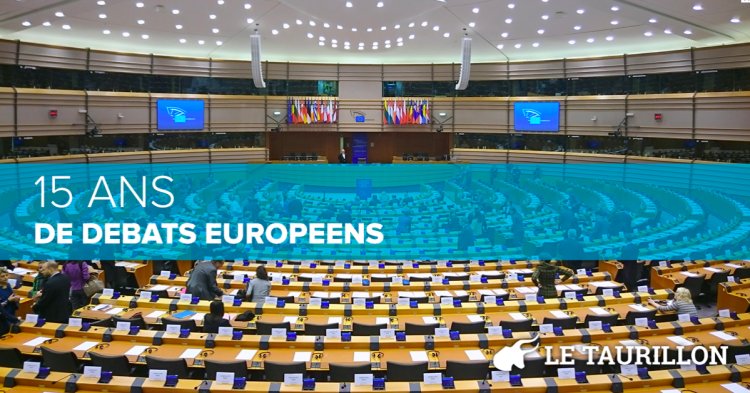It is true that Europe, originally a vast continent stretching from the Atlantic Ocean to the Ural Mountains, is now an entity with a much deeper meaning: it is a unique economic and political union bringing together 27 European countries. However, discussions regarding Europe’s identity remain. What should Europe become today? Why has the European project lost some of its legitimacy among its people this year?
Since 2005, when the European Constitutional Treaty failed, 15 years of doubt, disagreements, mutual help, upheaval, and questioning have passed. The European project bears witness to a permanent complexity, as well as the need for harmonisation in all areas and between all Member States of this European Union. The 27 states are desperately seeking to make the most of their individual interests, while at the same time endeavouring to set up actions of solidarity to that the European project, initiated by Robert Schumann and Jean Monnet, can become legitimate.
Is the move towards European federalism easy?
One of the main debates concerning the future of the European Union remains the choice between a federal Europe or a Europe of nation states. Today, Europe is more of a confederation and association of nation states. Even if European federalism seems to have many advantages, with a concrete and effective solidarity among European states, which are now ready to make Europe a major player in the face of Washington and Beijing, the difficulties remain considerable. It is as ‘simple’ for Europe to make the same federal leaps that was undertaken by the United States at the end of the 18th century.
Indeed, France, Germany and the other European states have a different cultural heritage and 1500 years of complex history between them, making it all the more difficult for them to abandon their national sovereignty. The United States certainly experienced the turbulence of the American Revolutionary War (1776-1783) or of the American Civil War (1861-1865), but its history remains less dense than France in terms of its duration. They already had a common language, agricultural land, practised a predominantly Protestant religion and their inhabitants were, for the most part, descendants of British settlers.
It was thus easier to integrate Connecticut and Virginia into the United States than it is to integrate old European nation states into a federal state. We can, therefore, ask ourselves whether Europeans are really prepared to assume that their future is in the hands of a European political authority, headed by leaders from various countries, which, for example, leads the French to receive directives from the Germans and the Germans to receive theirs from the French. It was then that the question of national sovereignty is called into question.
Are the geographical boundaries of the European Union still an unfinished debate?
The European Union has gone through various waves of enlargement before arriving at 27 member states: the main aim was for countries that had trade relations with each other become economically interdependent, thus creating an internal market whose potential would develop over the years. But in the 21st century, deciding which candidate country will join the European Union is still a delicate decision. Since the Since the Stabilisation and Association Agreement, which came into force in 1999 thanks to the European Commission, every European state can apply to become a member of the European Union for the purpose of fostering peace, democracy, and economic prosperity.
Turkey, example, Turkey, has been applying for membership since 1987, and its application was officially recognised by Europeans in 1999. Although accession negotiations began in October 2005, Turkey’s integration remains at a standstill in 2020. Indeed, the country’s entry into the European Union has been the subject of heated debate. Some consider it dangerous to let a country with a large surface area and its 83 million inhabitants – which would represent the most populated country in the Union – where the main religion is Islam, enter into the Union.
As mentioned above, the Constitutional Treaty, signed in Rome by 25 heads of government on October 29, 2004 ended in failure. Indeed, the referendum proposed in France on 29 May 2005 showed a major ‘no’ at 54.68% of the votes, followed a few days later by a refusal by the Dutch at over 60%: this shows a certain ‘victory’ of the people who, nevertheless, showed their political dissatisfaction with the European construction, proof that many problems still remain unsolved. This text meant a more extensive institutional revision than that introduced by the Treaty of Nice in 2001, following the integration of new countries into the European Union.
This majority “no” vote revealed, as many specialists have since studied, an ideological crisis in European integration as well as a certain level of distrust in the face of potential enlargements such as Turkey’s entry into the EU. As geopolitical scientist, Yves Lacoste, described in the journal Hérodote n°118 from 2005: “it is, above all, the eminently geopolitical question of Turkey’s accession to the EU that was one of the great reasons for the success of the no vote in referendum on the ‘Constitution’.” While Turkey has long struggled to join the EU, on the contrary, other countries such as the United Kingdom are choosing to withdraw from this economic and political union in order to restore their full national sovereignty, as the Brexit referendum in 2016 has shown. After explaining the reasons for this final decision, this country wished to trade freely with the world and free itself from Brussels’ regulations on entrepreneurial freedom, to control immigration and finally to leave this “failed” European project, pulled down, according to them, by the never-ending crisis in the Eurozone.
Today, the delimitation of this European Union is, therefore, uncertain and remains at the heart of many debates: should priority be given to the entry of emerging countries into the EU or should integration within the Union itself be strengthened between countries that are already members?
When will harmonisation between European countries in all areas finally take place?
First of all, there are several disparities between European states in terms of fiscal policy. Although fiscal harmonisation seems to be an aim for the European project among some countries of the European Union, one must not that such would benefit mostly those among the European member states with a high tax rate.
There are several discrepancies between European states in terms of fiscal policy. Even if tax harmonisation seems to a goal for the European project among some EU countries, it should not be forgotten that it would be a great benefit among the Member States with a high tax rate. Indeed, this harmonisation would not be beneficial for many countries, such as Ireland, which uses its low tax rate to attract large international companies, or for Eastern countries, such as Poland, which use this low level of taxation to have lower labour costs. However, this tax harmonisation would have certain benefits as it would prevent “unfair” competition between Member States. Fiscal federalism could, therefore, be another alternative. In this case, the European Union could create its own budget and levy its taxes freely.
This configuration would provide more financial means and more weight to the European Union, which today depends on the contributions of the Member States and on 1% of the GDP of the Union as a whole. The prerogative to vote on the budget has always been a crucial element of a State’s sovereignty. This is why many European countries are reluctant to increase the financial capacity of a European budget. In comparison, the US federal budget accounts for 25% of US GDP, as Stéphane Saurel estimates in his book The budget of the European Union, which shows a considerable gap between the US and European budgets.
Nevertheless, some politicians seek different strategies at the national level, such as could been seen in the case of the French Minister of Economic Affairs, Bruno Le Maire, who suggested establishing a tax specifically designed to address American digital mammoths such as Google, Amazon, Facebook, Apple and Microsoft at a European level on January 17, 2020. Nevertheless, politicians are considering other strategies at the national level, as we saw when Bruno Le Maire, French Minister of Economy, who on 17 January 2020 suggested implementing a Europe-wide tax on GAFAM - the American digital giants: Google, Amazon, Facebook, Apple and Microsoft. He accuses them of paying very little tax by setting up their headquarters in countries with very low tax rates.
While Spain, the Czech Republic and Italy are following France’s lead by approving this digital tax project, other countries are more reluctant. Germany, for example, fears American retaliatory measures on German imports to the United States (particularly concerning German cars), if the Germans increased their tax rates at national level. This is why autonomy in fiscal matters could be conducive to a more united and supportive Europe, although this would require unanimous agreement among European countries - another obstacle to effective European construction and matter of debate.
Consequently, taxation is still one of the many issues within the European Union that needs to be clarified. Migration, industrial and monetary policies also remain delicate and uncertain subjects. It is also questionable whether the European Union will one day succeed in cutting its ties with the United States, particularly in terms of military independence within the framework of NATO. US President Donald Trump has decided to reduce the number of American soldiers on German soil. French President Emmanuel Macron for his part described NATO as a “brain-dead” institution: proof that US-European relations in military terms are still sensitive. The creation of a common European Armed Forces seems a long way off, as the reluctance and mistrust of Eastern European countries and of Germany towards the idea of an autonomous European military force shows.
In the economic field, the issue of protectionism is still hotly debated in the context of globalisation. Moreover, the European institutions have not yet resolved the issue of setting up world-class European companies in strategic sectors. The failures of company mergers, for example between the France’s Alstom and Germany’s Siemens, have demonstrated this. European Commissioner Margrethe Vestager has dismissed this project, as it was contrary to the traditional EU policy of respecting free and undistorted competition. However, this line of conduct will probably have to change if Europe wishes to build up world-scale groups that can compete with the Americans and the Chinese.
Finally, European countries will inevitably have to review, at some point or another, what priorities to give to this current Europe in order to revive it. Are we ready to invest in digital technology or in green energy (as the President of the European Commission Ursula von der Leyen has said), in research, in artificial intelligence or in space so as to create a kind of “European NASA”? Many uncertainties still require discussion and cohesion among the twenty-seven.
Over the last 15 years, the European project has been weakened by the French and Dutch referenda lost in 2005 and by the huge Brexit earthquake in 2016. Moreover, the COVID-19 crisis has not resolved the many conflicts that persist within the European Union, but should nevertheless be a good time for a general explanation to be put in place on what precisely Europe should become, on its delimitation and the projects that will allow for solidarity and for united countries have influence on the international scene. This is the price to be paid for the citizens of the European Union so that they regain greater confidence in the European project.


Follow the comments: |
|
